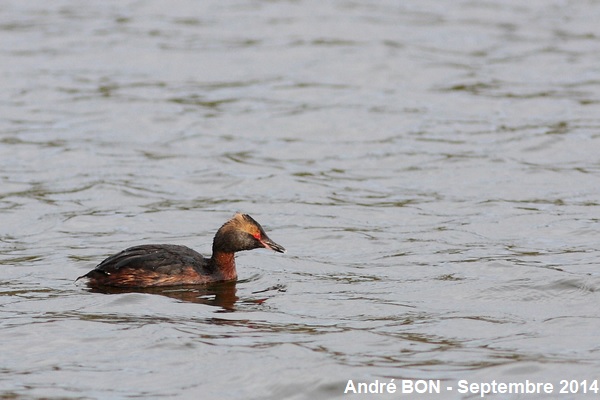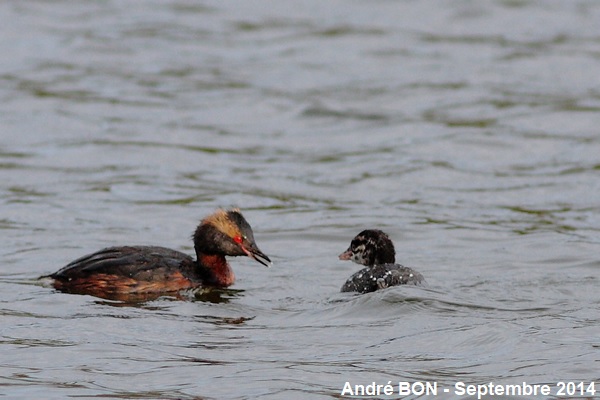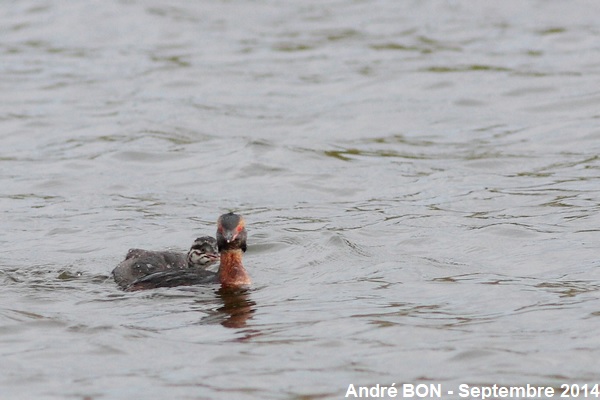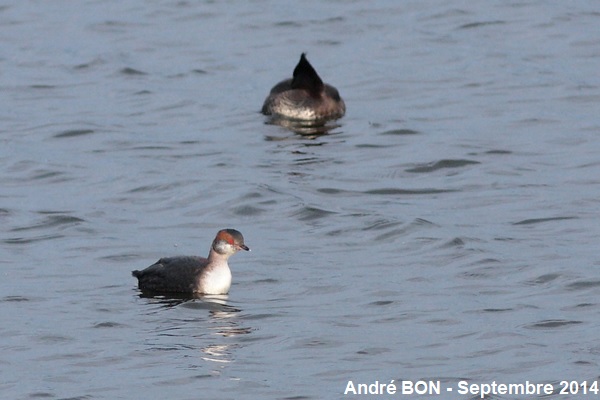



| Horned Grebe (Podiceps auritus (Linnaeus, 1758)) |




|
|
Scientific name: Podiceps auritus (Linnaeus, 1758) Common name: Horned Grebe French name: Grèbe esclavon Order: Podicipediformes Family: Podicipedidae Size: Body size: 31 to 38cm; Weight: 300 to 500g; Wingspan: 55 to 74 cm. Habitat: Lakes and ponds, generally shallow, with free areas and areas with dense vegetation. Food: Small fishes, water insects, amphibians and molluscs. Nesting: The nest, built of plant debris, is hidden in the bank vegetation. There are 3 to 6 eggs per clutch. Migration: Horned Grebes migrate southwards relatively late in the year, around the month of November. They winter in Western and Central Europe, from the north of France to the Black Sea. They prefer coastal areas or sometimes very large bodies of water inland. Geographic area: |
You can easily recognize the Horned Grebe in nuptial plumage with its black head showing two tufts of golden yellow feathers extending from the bill to the nape. The upper side of the body is black. The underside is white. The flanks and the neck are reddish brown. The eyes are red. The bill is black and pointed , and with a lighter coloured tip. The winter plumage is very different. The throat, lower cheeks, flanks and underside are white. The upper side of the head is black. The back of the neck and the upper side of the body are a very dark grey colour. There is a possible confusion with the Black-necked Grebe (Podiceps nigricollis) in winter plumage. You can recognize this last species with the limit of the black cap located below the eye and with its slightly upcurved bill. |
| [To know more about the Horned Grebe] [Next picture] [Top] |

|
Half a day at the Mývatn lake is enough for a good bird watching session. Horned Grebes are really beautifule birds. |
| [To know more about the Horned Grebe] [Next picture] [Previous picture] [Top] |

|
I was not expected to see so young chicks at this time of the year. This must be a very late clutch here. |
| [To know more about the Horned Grebe] [Next picture] [Previous picture] [Top] |

|
It's always a pleasure to see Grebe's chicks on the back of their parents. |
| [To know more about the Horned Grebe] [Previous picture] [Top] |

|
Here is a bird which is changing its breeding plumage to its winter plumage. |